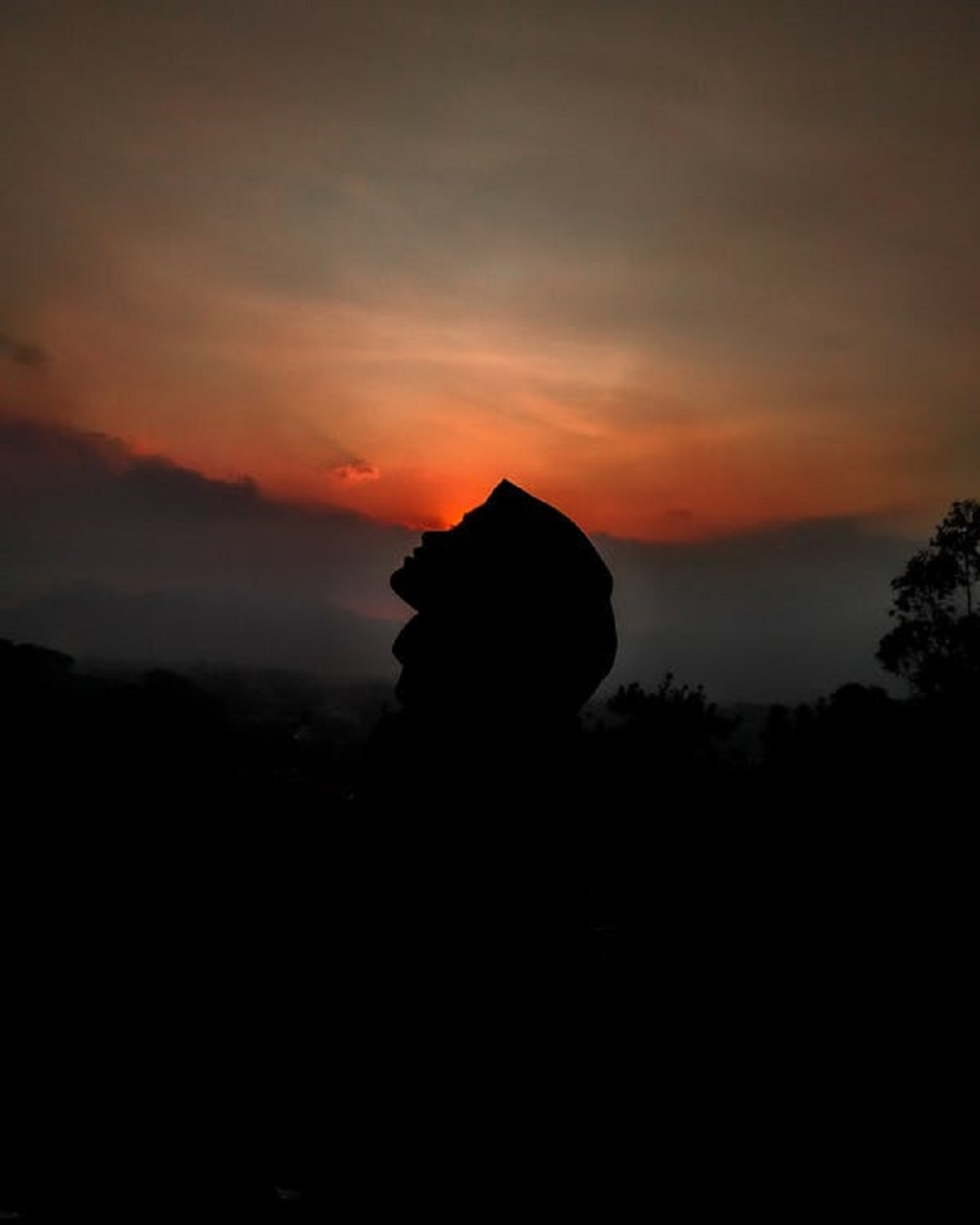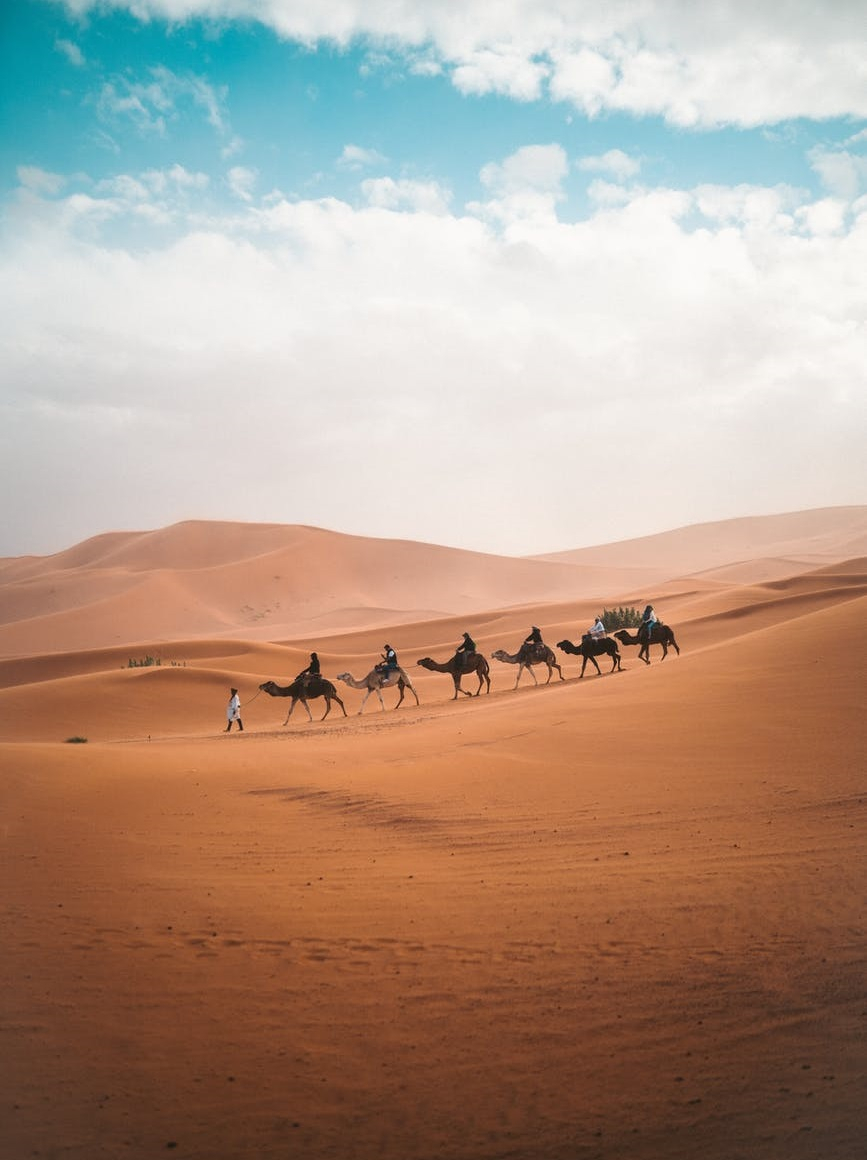Asma Bint Abi Bakr Epitomized Strength Under Great Duress as a Mother & Protector
Faith
|
Mar 12, 2021
|
7 MIN READ

Image source: Pexel
Editor's note: For Women's History Month, we are sharing stories of some of our favorite Sahabiyyat, female companions of the Prophet Muhammad (saw). These women are the foundations of our histories, and their lives are multitude of lessons for us all.
Growing up, learning about Islamic history and the Seerah, I overlooked the vital role Muslim women played in our history – Hawa (Eve), Maryam, Hajar, the wives of the Prophet (saw) and so many more important women in between. They were historic figures I could not relate to as a child and young adult. Now, as a grown woman, and more specifically a wife and a mother, revisiting these stories and learning more about their lives, their stories resonate with me on a new level.
I am emotionally invested in their stories and can relate to their various roles, struggles, sacrifices and the magnitude of their work.
Daughters, sisters, mothers, aunts, caregivers, students of knowledge, teachers, community members – I share these titles and roles with Muslim women in Islamic history. Instantly my connection is built through the innate nature of womanhood that binds us. My fondness and respect for these powerhouses grows instantly. It is as though we are connected through a different time and place, through different struggles and trials, but our shared nature and roles build an instantaneous sisterhood.
In light of Women’s History Month, I’m proud to join my fellow writers here on The Haute Take in showcasing some of the great sahabiyyat, whose roles were instrumental to the growth and spread of Islam. From warriors to scholars to mothers and daughters, these sahabiyyat showed us that juggling roles has always been part of our legacy. After listening to The Firsts series by Imam Omar Suleiman, I was especially drawn to his lecture on Asma Bint Abi Bakr (ra).
Courage & Bravery
Asma (ra) is the daughter of Abu Bakr Al Siddiq (ra), who was the Prophet’s closest companion and confidant after his wife Khadijah (ra) and the first man to accept Islam. Following her father’s footsteps, Asma (ra) was also one of the firsts to enter Islam at the young age of 11. She was also the half sister of the Prophet’s wife (whom he married later in life), Aisha (ra), which makes her the Prophet’s sister-in-law.

Image source: Pexel
Due to this closeness in familial relationship, she naturally narrated a plethora of hadith on behalf of Aisha (ra) and the Prophet Muhammad (saw). We do not know much about her life in the early Makkan years of Islam aside from the fact that she was one of the first to accept Islam and was a regular attendee of Dar Al Arqam, the first educational institution where the Prophet taught the early Muslims about Islam. Her role in Islamic history as a woman of faith, strength and bravery is showcased during the initiation of the hijrah (migration) to Madinah.
At this time, she was heavily pregnant with her first child, Abdullah Ibn Al Zubayr (ra), and took on the role of sending food to her father Abu Bakr (ra) and the Messenger of Allah (saw) in their hiding place of Ghar (cave) Thawr during their migration to Madinah. Asma (ra) stayed back in Makkah as the rest of the Muslims made their hijrah. She would coordinate with the Prophet (saw) and her father and regularly deliver their meals and goods by tying them around her waist with two belts.
Upon seeing her deliver the food in this fashion, the Prophet Muhammad (saw) smiled and gave her the title of “The Possessor of Two Belts," saying, "Indeed Allah has given you in exchange for this, two belts in paradise.”
This was a direct reference to her reward of adorning the clothing of Jannah, and she was promised paradise through this unique role she played.
Before her own hijrah to Madinah, Asma (ra) was eventually confronted by Abu Jahil, the greatest enemy of Islam at this time, and a man of great power and authority in Makkah. After three attempts at asking her for the whereabouts of her father and the Prophet (saw), Asma (ra) courageously and fearlessly refused to give in and did not disclose any information about Abu Bakr (ra) and Muhammad (saw).
Abu Jahil slapped her across the face so hard that her earring fell out. She was alone in a city, surrounded by the enemies of Islam, and confronted by the man who was after the Prophet (saw). He publicly killed Muslims left and right just to get to him. Yet she stood her ground. Can you imagine, even just a little, of how much courage it took for her to do this while bearing a child?
As a mother myself, hearing this incident shook me to my core. Pregnancy alone comes with it’s own sets of physical and emotional challenges. This was a labor-intense responsibility she took on for the sake of her faith. The courage she exhibited in the face of an enemy while carrying a child is the epitome of Muslim heroism and woman power! In my humble opinion, Asma (ra), in this instant, exhibited the sacrifices of motherhood not only for her own child but metaphorically speaking as a mother to the entire Ummah.
A Loving Wife Amidst Hardship

Image source: Pexel
Asma (ra) lived in poverty as a married woman. She married a poor, yet pious man, Al Zubayr ibn Al Awwam, who did not own very much. While Al Zubayr took on the busy duties of being a general in the Prophet’s army, Asma (ra) held down the fort at home. Her responsibilities included grazing her husband’s horse, grinding the dates for his camel alongside tending to the camel’s needs, and kneading the flour and baking bread with the help of her neighbors. These were duties she was not accustomed to in the house of her father, Abu Bakr (ra), who was a wealthy man.
In an incident where she carried date stones on her head from a land gifted to Al Zubayr by the Prophet to her home in Madinah, she met Muhammad (saw) along with some of his companions. Upon seeing her struggle with the date stones on her head and the long journey on foot ahead, the Prophet (saw) invited Asma (ra) to sit on his camel. Instead of accepting the offer, she instantly remembered the sense of jealousy her husband had and how her image sitting on the camel amongst the rest of the men may bother Al Zubayr. She declined politely and proceeded to walk to Madinah carrying the food she had collected on her head.
Al Zubayr later told her that he was more hurt that she was seen in such a position of humiliation and hardship, than he would have been from jealousy.
This story resonated with me because as a wife, I share her sense of selflessness and affection. As women, but more specifically wives and mothers, it is from our innate nature to put the needs of those we love dearly before ours. Her consideration for her husband’s feelings in a moment of immense struggle is a testimony of true love.
A Mother Grounded in Faith
Asma (ra) lived a long life of servitude dedicated to the cause of Islam. She was a warrior in the Battle of Yarmouk, which speaks to her courageous nature. She gave birth to and raised some of the greatest figures in Islamic history – Abdullah Ibn Al Zubayr (ra), the caliphate, scholar and martyr who governed the Muslims from Makkah. She was also the mother of the great scholar, Urwa Ibn Al Zubayr (ra). Urwa (ra) is an essential narrator on behalf of his aunt, Aisha (ra). He would sit with his aunt and gather the knowledge from her to share with the Ummah.
This is the legacy of Asma (ra): A trailblazer working tireleslley behind the scenes aiding the spread of Islam and mother to some of the greatest offspring in our history.
In an intimate incident near the end of her life, Asma (ra), at the age of 100 years old, consoled her eldest son Abdullah Ibn Al Zubyr (r) in their last meeting before he was murdered by an attacker of the Kabah. Both Asma (rah) and her son Al Zubyr (ra) lived long lives serving Allah (S), and now he sought his mother’s advice on whether he should give up in the face of a tyrant who had attacked Makkah.
Abdullah asked his mother, “Should I surrender or keep fighting?”
Asma (rah) said to him, “By Allah (S), a dignified strike with a sword is more beloved than a humiliating lash of a whip.” When Abdullah (ra) asked her if she would be saddened by his death, she replied, “I would feel sad for you, my son, if you were killed in falsehood. Alhamdullilah who made you in a way that Allah (S) loves and in a way that I love as well.” She told him to come close to her so that she could hold on to him and smell him for the last time. They embraced each other, hugged, and cried as they both knew his fate, a martyr in the sake of Allah (S).
Hearing this narration gave me goosebumps, as I think about my own relationship with my son and what I would do as a mother in her situation. Surely there is no comparison between this great sahabiyyah and I, but if there is one thing we both share, it is the purest love a person can have – the love of a mother for her child.
Asma’s (ra) strength is admirable, and her grounded faith in her Creator is something I aspire to achieve. Asma Bint Abi Bakr (ra) is a beacon of courage, bravery and resilience who exemplified her humanity and Iman until the very end. May Allah (S) help us achieve her qualities in our personal lives, struggles, relationships and servitude to Allah (S). Ameen.
Subscribe to be the first to know about new product releases, styling ideas and more.
What products are you interested in?

